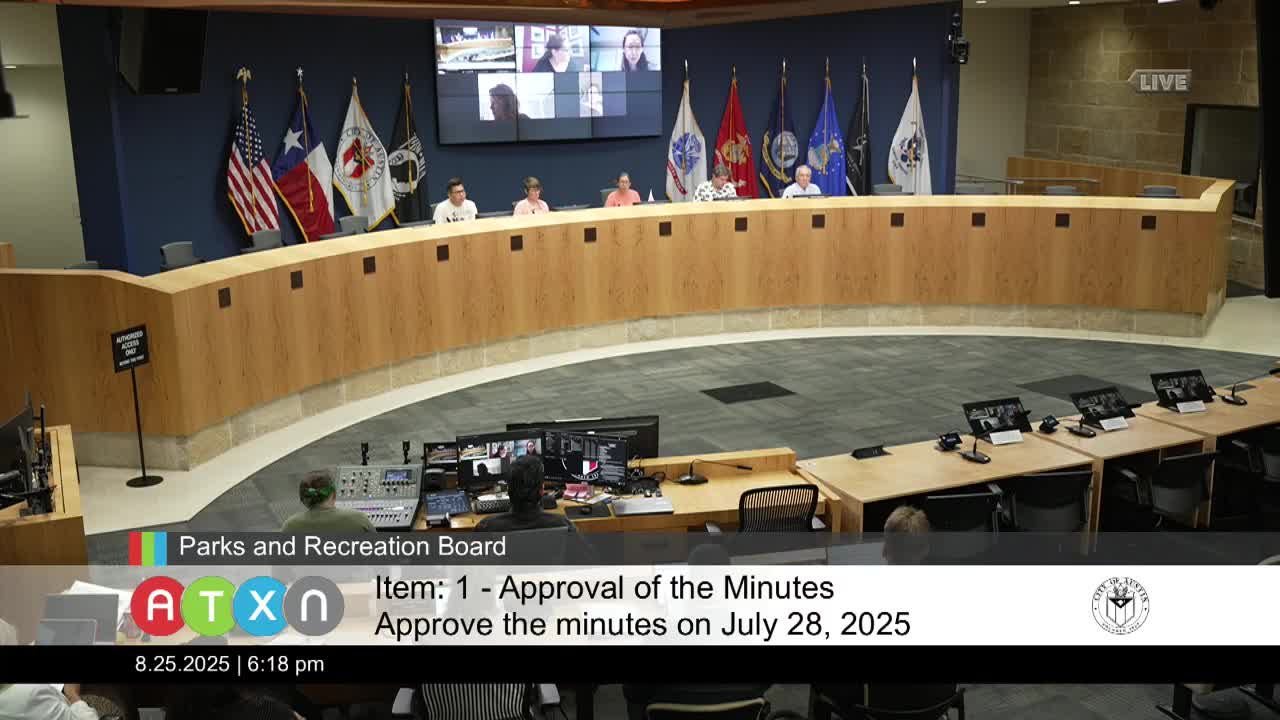Article not found
This article is no longer available. But don't worry—we've gathered other articles that discuss the same topic.
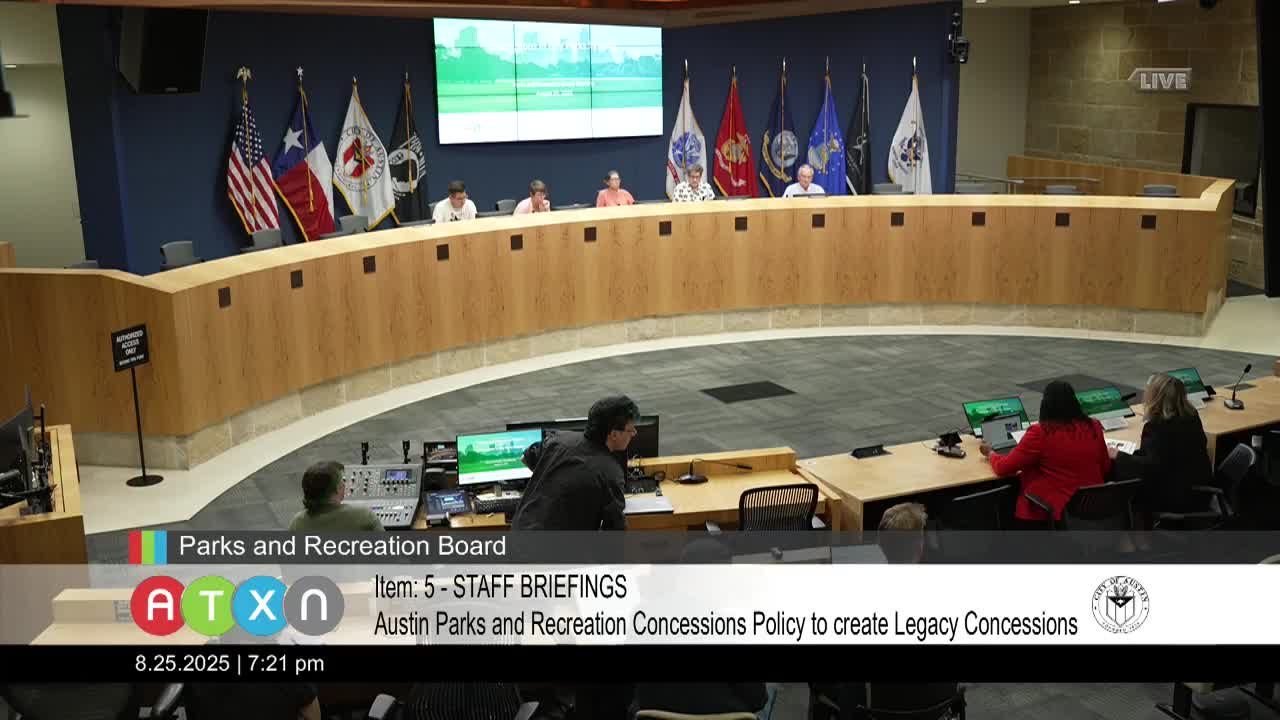
Parks staff propose "legacy concession" status for long‑running park vendors; policy would require 30 years of continuous operation
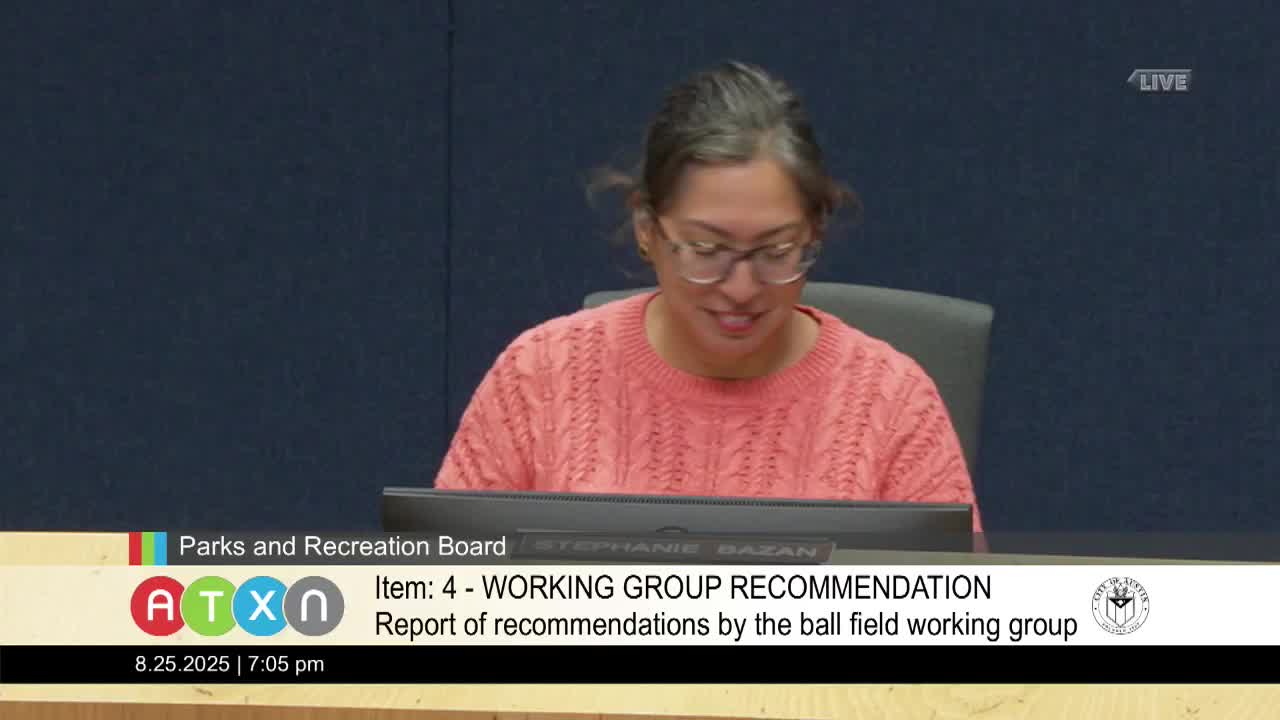
Board working group offers draft plan to improve public access to baseball and soccer fields
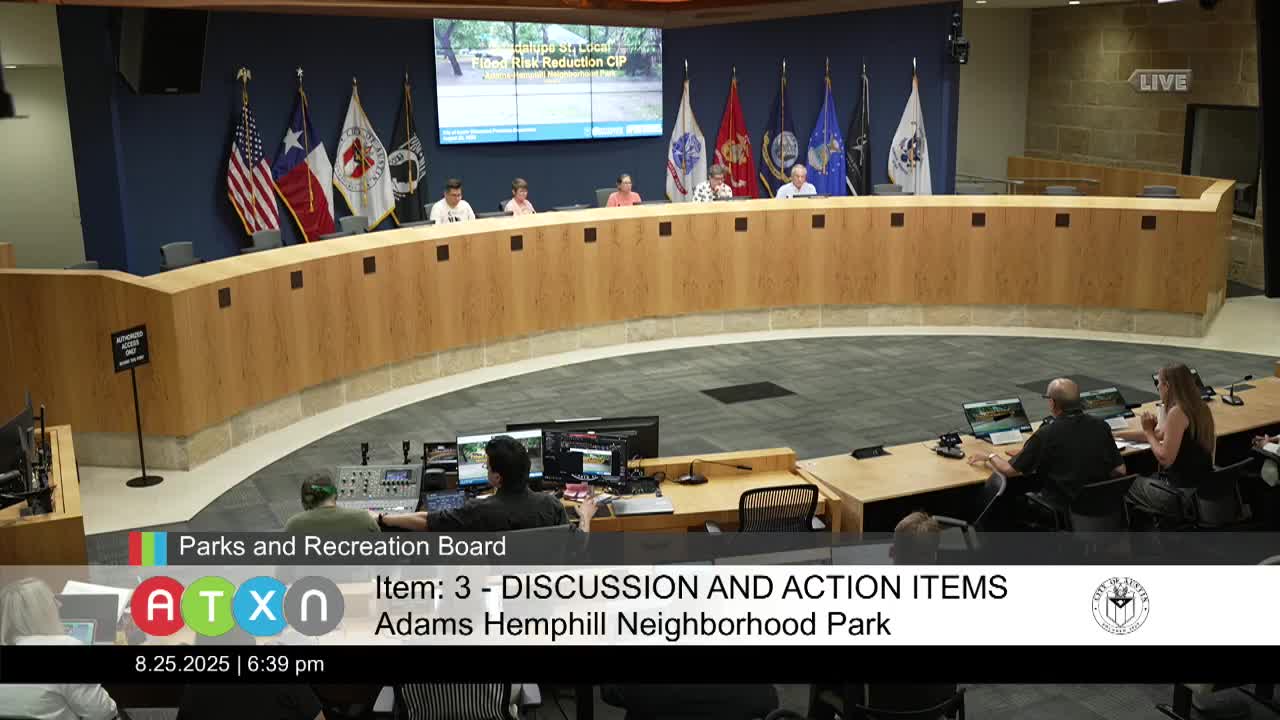
Parks board recommends City Council approve dual‑use detention basins at Adamson/Hemphill Park to cut flood risk
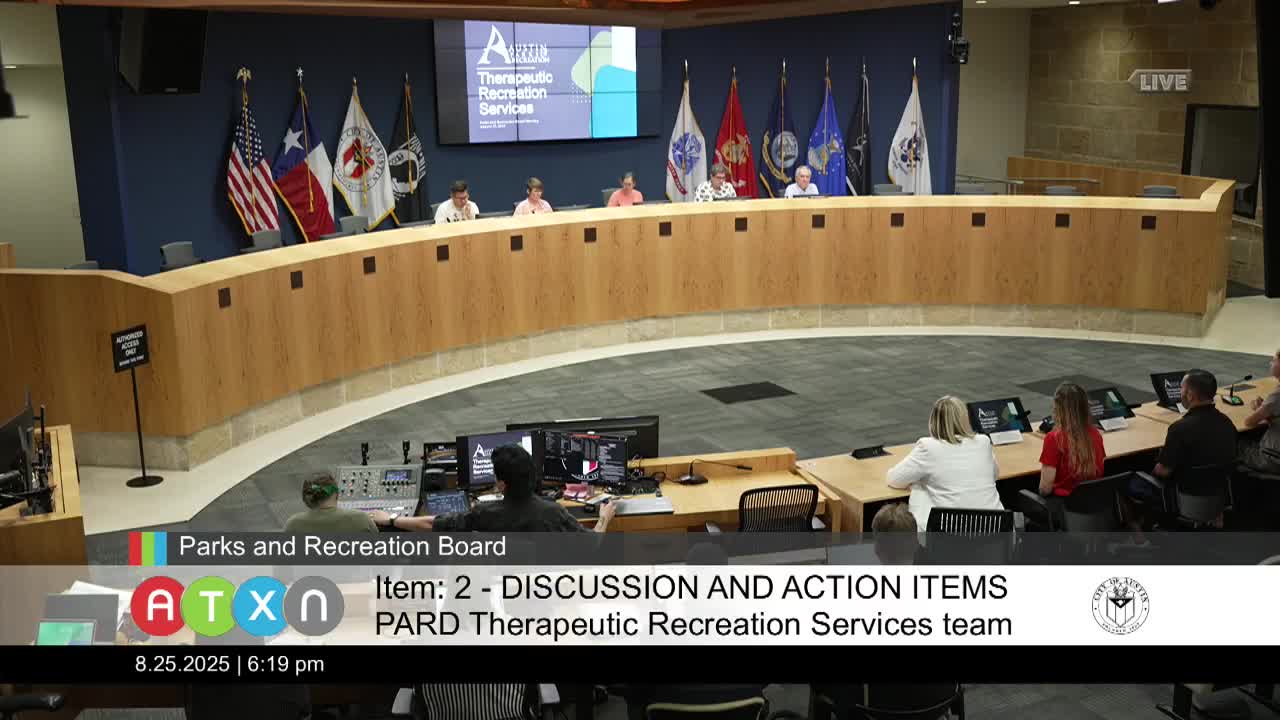
Parks board approves letter supporting therapeutic recreation services for people with disabilities
